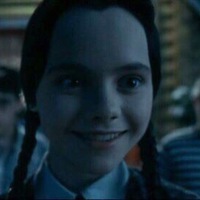
Докажите, что роман "Мастер и Маргарита " модернистский. Можно ли его назвать романом- мифом???
 0
0
 0
0
Ответы на вопрос
 Внимание! Ответы на вопросы дают живые люди. Они могут содержать ошибочную информацию, заблуждения, а также ответы могут быть сгенерированы нейросетями. Будьте внимательны. Если вы уверены, что ответ неверный, нажмите кнопку "Пожаловаться" под ответом.
Внимание! Ответы на вопросы дают живые люди. Они могут содержать ошибочную информацию, заблуждения, а также ответы могут быть сгенерированы нейросетями. Будьте внимательны. Если вы уверены, что ответ неверный, нажмите кнопку "Пожаловаться" под ответом.

 0
0
 0
0

The Modernist Nature of "Master and Margarita"
"Master and Margarita" is considered a modernist novel due to its innovative narrative techniques, exploration of existential themes, and its critique of Soviet society. The novel, written by Mikhail Bulgakov, was completed in 1940 but was not published until 1966-67, long after the author's death.
Innovative Narrative Techniques: One of the key characteristics of modernist literature is the experimentation with narrative techniques. "Master and Margarita" employs various narrative techniques, such as the blending of different genres, the use of multiple perspectives, and the incorporation of metafiction. The novel combines elements of satire, fantasy, and historical fiction, creating a complex and multi-layered narrative.
Exploration of Existential Themes: Modernist literature often delves into existential themes, questioning the nature of reality, the individual's place in society, and the search for meaning in a chaotic world. "Master and Margarita" explores these themes through its portrayal of characters grappling with moral dilemmas, the existence of evil, and the nature of artistic creation. The novel raises philosophical questions about the nature of good and evil, the power of imagination, and the role of art in society.
Critique of Soviet Society: Another characteristic of modernist literature is its critique of the prevailing social and political order. "Master and Margarita" serves as a satirical critique of Soviet society under Stalin's rule. The novel exposes the hypocrisy, corruption, and absurdity of the Soviet system through its portrayal of characters like Woland, a devil-like figure who wreaks havoc in Moscow. Bulgakov uses satire and irony to challenge the official narrative and highlight the contradictions of Soviet society.
"Master and Margarita" as a Mythological Novel
"Master and Margarita" can also be considered a mythological novel due to its incorporation of mythological elements and its exploration of universal themes and archetypes.
Incorporation of Mythological Elements: The novel incorporates various mythological elements, such as the character of Woland, who can be seen as a representation of the devil or a trickster figure from folklore. The novel also draws on biblical stories and references, such as the crucifixion of Yeshua Ha-Notsri (Jesus Christ) and the temptation of Pontius Pilate. These mythological elements add depth and symbolism to the narrative, allowing for a deeper exploration of universal themes.
Exploration of Universal Themes and Archetypes: "Master and Margarita" explores universal themes and archetypes that are found in myths and legends across different cultures. The novel delves into themes of good and evil, redemption, love, and the struggle between the individual and society. The characters in the novel, such as Margarita and the Master, can be seen as archetypal figures representing the human desire for freedom, love, and spiritual fulfillment.
In conclusion, "Master and Margarita" can be considered both a modernist novel and a mythological novel. Its innovative narrative techniques, exploration of existential themes, and critique of Soviet society align it with the characteristics of modernist literature. At the same time, its incorporation of mythological elements and exploration of universal themes make it a mythological novel as well. The novel's complexity and depth have contributed to its enduring popularity and critical acclaim.
 0
0
 0
0
Топ вопросов за вчера в категории Литература
Последние заданные вопросы в категории Литература
-
Математика
-
Литература
-
Алгебра
-
Русский язык
-
Геометрия
-
Английский язык
-
Химия
-
Физика
-
Биология
-
Другие предметы
-
История
-
Обществознание
-
Окружающий мир
-
География
-
Українська мова
-
Информатика
-
Українська література
-
Қазақ тiлi
-
Экономика
-
Музыка
-
Право
-
Беларуская мова
-
Французский язык
-
Немецкий язык
-
МХК
-
ОБЖ
-
Психология
-
Физкультура и спорт
-
Астрономия
-
Кыргыз тили
-
Оʻzbek tili




















